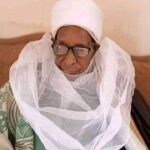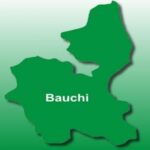The visit to Washington by President Muhammadu Buhari is viewed by the U.S. administration as a chance to set the seal on improving ties since he won a March election hailed as Nigeria’s first democratic power transition in decades.
U.S. cooperation with Buhari’s predecessor, Goodluck Jonathan, had virtually grounded to a halt over issues including his refusal to investigate corruption and human rights abuses by the Nigerian military.
“President (Barack Obama) has long seen Nigeria as arguably the most important strategic country in sub-Saharan Africa,” U.S. Deputy Secretary of State Tony Blinken told Reuters. “The question is would there be an opportunity to deepen our engagement and that opportunity is now.”
U.S. officials have said they are willing to send military trainers to help Nigeria counter a six-year-old northern insurgency by the Boko Haram Islamist movement.
Since Buhari’s election, Washington has committed $5 million in new support for a multi-national task force set up to fight the group. This is in addition to at least $34 million it is providing to Nigeria, Chad, Cameroon and Niger for equipment and logistics.
Another senior U.S. official said Washington was urging Buhari, a Muslim from the country’s north, to step up regional cooperation against the militants and to provide more aid to afflicted communities to reduce the group’s recruiting power.
Johnnie Carson, a former assistant secretary of state, said Washington should not let security issues overshadow the need for closer trade and investment ties.
Lauren Ploch Blanchard, an Africa specialist with the non-partisan Congressional Research Services, said the U.S. challenge was to work with Buhari while giving him time to address the country’s vast problems.
(Reuters)
 Join Daily Trust WhatsApp Community For Quick Access To News and Happenings Around You.
Join Daily Trust WhatsApp Community For Quick Access To News and Happenings Around You.


